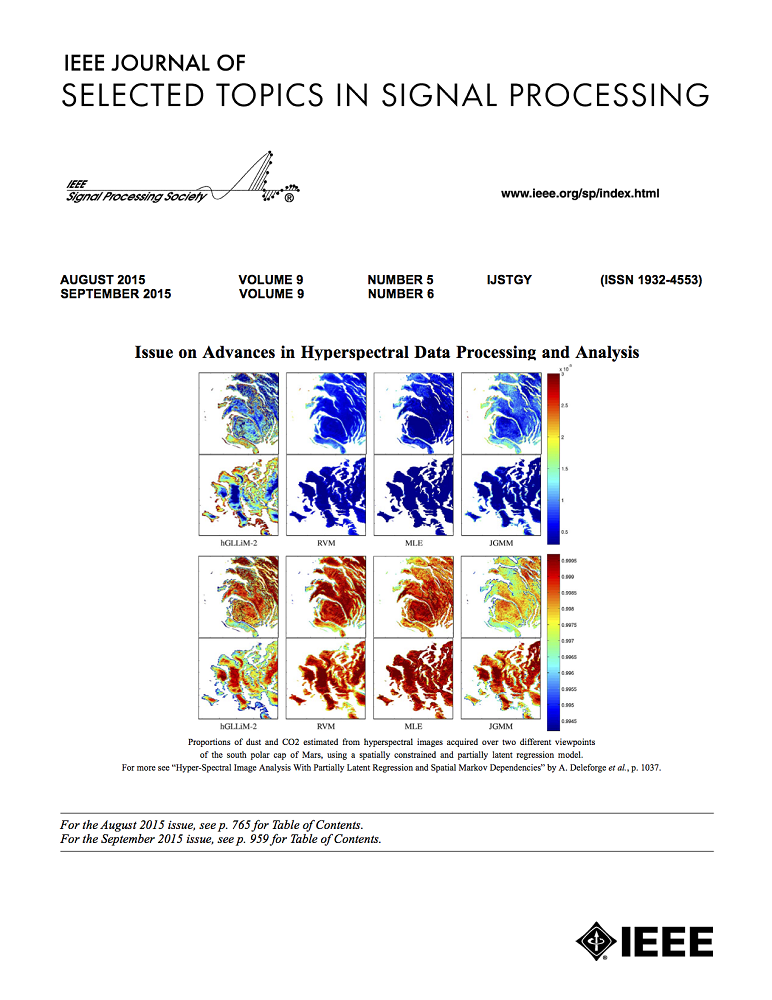用于W波段信道探测的虚拟天线阵列:设计、实现和实验验证
IF 8.7
1区 工程技术
Q1 ENGINEERING, ELECTRICAL & ELECTRONIC
IEEE Journal of Selected Topics in Signal Processing
Pub Date : 2023-07-01
DOI:10.1109/JSTSP.2023.3301135
引用次数: 0
摘要
由于其巨大的未开发带宽,亚太赫兹(Sub-THz)(即100–300 GHz)通信被设想为未来第五代(B5G)通信系统的关键组件之一。亚太赫兹信道测量对于建立准确和逼真的亚太赫兹信道模型至关重要。在文献中,虚拟天线阵列(VAA)方案已被广泛用于无线电信道探测目的。然而,由于系统相位不稳定性问题,它在W波段(即75–110 GHz)的应用很少被讨论。为了解决这个问题,提出了一种基于长程相位补偿矢量网络分析仪(VNA)的W波段信道测深仪。首先,在存在电缆弯曲的情况下对所开发的航道测深仪进行背靠背测量,其中,由于电缆效应而导致的超过180美元范围的初始相位变化可以通过所提出的相位补偿方案很好地校正到10美元范围内,清楚地验证了其有效性。为了检查其在实际部署场景中的工作情况,然后将所提出的信道测深仪用于具有两个测量距离的信道测深,覆盖近场(视线(LoS)距离为7.3米)和远程(LoS距离为84.5米)情况。基于测量数据,应用高分辨率信道参数估计器分别在近场和长程场景中提取W波段大规模VAA的信道多径参数。本文将高分辨率算法扩展到支持由全向天线和定向天线组成的虚拟阵列。采用传统的定向扫描方案(DSS)测量作为参考测量,验证了所开发的通道测深仪的有效性和稳健性。最后,为了证明所开发的信道测深器的最先进的信道探测能力,使用VAA方案在霍尔场景中进行了104.5GHz和11GHz带宽的超宽带(UWB)信道测量,测量范围高达58m,具有全向天线,并且为了信道建模目的,使用经验证的高分辨率信道参数估计器来提取信道参数。本文章由计算机程序翻译,如有差异,请以英文原文为准。
Virtual Antenna Array for W-Band Channel Sounding: Design, Implementation, and Experimental Validation
Sub-Terahertz (sub-THz) (i.e., 100–300 GHz) communication is envisioned as one of the key components for future beyond fifth-generation (B5G) communication systems due to its large untapped bandwidth. Sub-THz channel measurements are essential for building accurate and realistic sub-THz channel models. Virtual antenna array (VAA) scheme has been widely employed for radio channel sounding purposes in the literature. However, its application for the W-band (i.e., 75–110 GHz) has been rarely discussed due to system phase instability issues. To tackle this problem, a long-range phase-compensated vector network analyzer (VNA)-based channel sounder at the W-band is proposed. First, the back-to-back measurement of the developed channel sounder is carried out with the presence of cable bending, where the initial phase variation beyond
$180^{\circ }$ $10^{\circ }$
求助全文
通过发布文献求助,成功后即可免费获取论文全文。
去求助
来源期刊

IEEE Journal of Selected Topics in Signal Processing
工程技术-工程:电子与电气
CiteScore
19.00
自引率
1.30%
发文量
135
审稿时长
3 months
期刊介绍:
The IEEE Journal of Selected Topics in Signal Processing (JSTSP) focuses on the Field of Interest of the IEEE Signal Processing Society, which encompasses the theory and application of various signal processing techniques. These techniques include filtering, coding, transmitting, estimating, detecting, analyzing, recognizing, synthesizing, recording, and reproducing signals using digital or analog devices. The term "signal" covers a wide range of data types, including audio, video, speech, image, communication, geophysical, sonar, radar, medical, musical, and others.
The journal format allows for in-depth exploration of signal processing topics, enabling the Society to cover both established and emerging areas. This includes interdisciplinary fields such as biomedical engineering and language processing, as well as areas not traditionally associated with engineering.
 求助内容:
求助内容: 应助结果提醒方式:
应助结果提醒方式:


